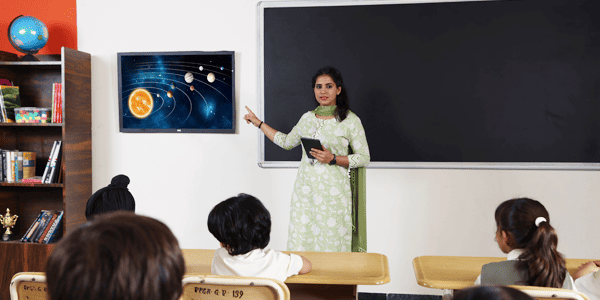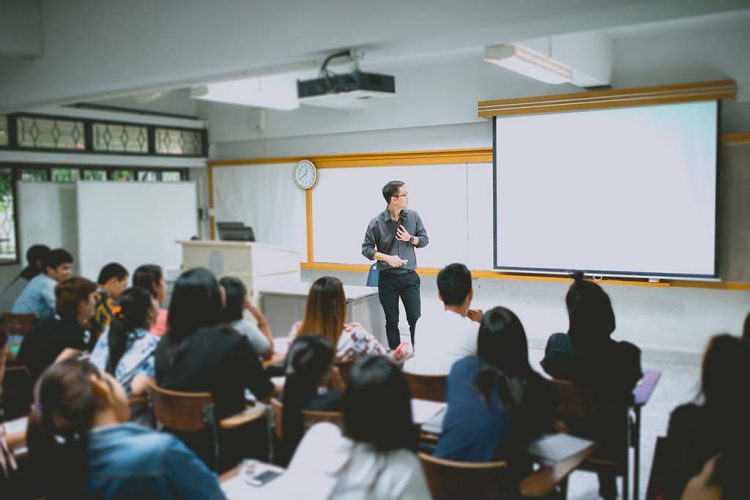Discovering the Different Training Approaches in Primary Scientific Research Education And Learning Today
Inquiry-based knowing, hands-on experiments, and the integration of technology are redefining just how educators engage young minds. Furthermore, collaborative approaches and differentiated guideline are being used to provide to the varied requirements of trainees, enhancing both engagement and understanding.
Inquiry-Based Knowing
Inquiry-Based Knowing (IBL) is a pedagogical approach that urges trainees to check out clinical principles through doubting, investigation, and hands-on testing. This method highlights the role of students as energetic participants in their knowing, promoting essential reasoning and analytic abilities. By engaging with real-world concerns, trainees become motivated and curious, which enhances their understanding of scientific principles.
In IBL, educators work as facilitators, leading trainees as they browse their queries as opposed to providing information directly. This student-centered technique enables distinction, fitting numerous discovering paces and styles. Pupils establish abilities in creating theories, developing experiments, and examining data, which are important for clinical literacy.
Additionally, IBL fosters collaboration amongst trainees, encouraging them to share ideas and findings. This collective query promotes social abilities and a feeling of area within the classroom. Additionally, the process of questions motivates strength, as students discover to welcome failure as a stepping rock toward understanding.
Hands-On Experiments
Hands-on experiments are an important element of effective science education and learning, enhancing the principles of inquiry-based knowing. These experiments allow pupils to engage straight with clinical concepts, promoting a much deeper understanding with experiential learning. By manipulating materials and observing end results, young students can realize abstract theories in tangible ways.
Such activities advertise crucial reasoning and analytic skills, as trainees assume outcomes, conduct experiments, and assess results. This process urges them to ask inquiries, refine their understanding, and establish a clinical state of mind. Furthermore, hands-on experiments can be customized to varied knowing styles, making certain that all students have the chance to involve meaningfully with the material.
Furthermore, hands-on experiments usually encourage cooperation amongst peers, advertising team effort and communication skills. Operating in teams allows students to share concepts, review findings, and pick up from one another, which boosts their general academic experience.
Incorporating hands-on experiments right into the main science curriculum not just improves the discovering environment yet likewise cultivates a lifelong passion in scientific research. By proactively taking part in their education, students are most likely to create an enthusiasm for scientific inquiry that expands past the classroom.

Modern Technology Integration
Incorporating technology into key science education and learning has come to be progressively essential in cultivating pupil interaction and boosting learning end results. Making use of electronic tools, such as interactive simulations, online laboratories, and educational software, supplies students with opportunities to explore scientific concepts in ingenious methods. These resources help with a deeper understanding of complicated topics by allowing learners to imagine and manipulate variables that would be impractical in a conventional classroom setting.
Furthermore, technology integration urges customized discovering experiences. Students can proceed at their very own pace, revisiting tough ideas through multimedia sources, which provide to different understanding designs. This versatility not only sustains specific growth but also cultivates a sense of autonomy in students.
Additionally, modern technology offers as a bridge to real-world science, linking trainees with existing research and professional payments. Access to on the internet data sources and clinical journals widens students' perspectives on scientific questions and cultivates important thinking skills.
Collaborative Understanding
Collective knowing plays a crucial duty in main scientific research education by promoting team effort and interaction abilities among pupils. This strategy urges students to collaborate, share knowledge, and participate in analytical, which improves their understanding of scientific concepts. By taking part in group activities, trainees discover to express their concepts, listen to diverse viewpoints, and discuss options, all of which are important skills click to read more in both real-world and scholastic contexts.

Study suggests that collaborative understanding can bring about enhanced motivation and involvement in science subjects, as students find enjoyment in common experiences (primary science tuition Singapore). Additionally, this method prepares students for future collaborative endeavors, equipping them with the abilities essential for effective team effort in college and specialist environments. Ultimately, accepting collaborative knowing in main scientific research education and learning can significantly enrich the knowing experience and promote a deeper understanding of scientific query
Distinguished Guideline

Distinguished direction can materialize in different means, such as varying the web content, processes, or items of discovering. As an example, teachers might use tiered projects that provide varying levels of intricacy, permitting students to work at their particular preparedness degrees. Furthermore, flexible organizing methods can facilitate partnership among pupils with different abilities, cultivating peer understanding.
Evaluation plays a crucial duty in this method, as it informs guideline and aids teachers recognize each pupil's unique demands. Developmental analyses, such as observations and tests, can direct instructors in changing their techniques to improve discovering results. primary science tuition Singapore. Inevitably, by implementing separated direction in primary science education and learning, instructors can cultivate a much more effective and equitable learning environment, empowering all students to reach their full possibility in understanding scientific phenomena
Final Thought
In recap, the diverse mentor methods in main science education, consisting of inquiry-based knowing, hands-on experiments, technology assimilation, collaborative knowing, and set apart guideline, jointly add to a more efficient discovering atmosphere. These techniques promote important thinking, analytical skills, and a deeper comprehension of scientific principles. By carrying out these methods, teachers can create engaging and supportive classrooms that deal with the different needs of students, ultimately promoting a long-lasting rate of interest in science and enhancing academic success.
Inquiry-Based Discovering (IBL) is an instructional method that encourages pupils to check out clinical ideas via doubting, investigation, and hands-on trial and error.Collective learning plays a crucial function in key scientific research education by cultivating team effort and communication skills amongst trainees.Study shows that collective knowing can lead to enhanced inspiration and engagement in scientific research subjects, as pupils find satisfaction in common experiences.In fostering an inclusive discovering environment, distinguished direction arises as a crucial approach to suit the varied demands and abilities of students in primary science education. Ultimately, by executing distinguished direction in main science education and learning, instructors can grow an extra fair and effective knowing atmosphere, encouraging all students to reach their full potential in visit homepage comprehending clinical sensations.
Comments on “Improve Your Child’s Performance with Primary Science Tuition Singapore”